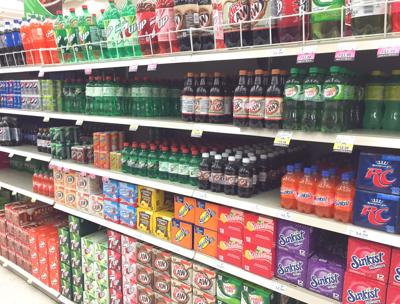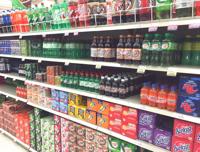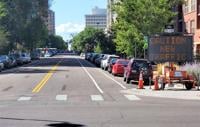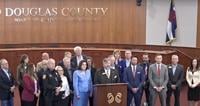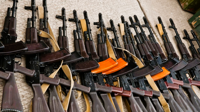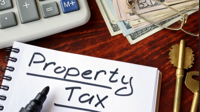A tax levied on sales of sweetened beverages in Boulder is bringing in more revenue than the city expected.
This November, voters may have the opportunity to decide whether the city will be able to retain anything over $3.8 million in receipts per fiscal year, if that surplus should be returned to distributors, as the current law stipulates, or distributed in some other way.
Instituted a year ago as a result of a public ballot initiative, Boulder's sugar-sweetened beverage tax, or surcharge – at 2 cents per fluid ounce – brought in $3.7 million through March 2018. Levied on distributors, revenues have been distributed to 19 local organizations that provide health and nutrition services, particularly among lower-income and ethnic minority groups. These have included programs that help diabetes patients manage the disease, advocate for clean water in Latino communities, and provide nutrition and fitness education.
Beverage companies spent heavily to oppose the sugary-sweetened beverage tax in the run-up to the public referendum. It was the most expensive campaign related to a public referendum waged in the city to date.
Critics contend that the law isn't discouraging consumption of soda and other sugar-sweetened beverages. What it is doing is driving up costs for small business owners and consumers, particularly lower-income families, providing a cover for retailers to raise prices in excess of the minimum necessary, and driving residents to shop in other, nearby communities, critics maintain.
The Colorado Restaurant Association hasn't issued any official statements regarding Boulder's sugar-sweetened beverage tax, but member restaurateurs in Boulder have said that it is costing them, not only in terms of higher taxes but in terms of its effects on sales and tips, Communications and Public Relations Director Carolyn Livingston told Watchdog. Basically, customers paying higher prices for soda and other sugar-sweetened beverages are apparently cutting back on tips, according to feedback received from restaurant owners that are members of the association's Boulder chapter.
While the effects on public health are unclear, the sugar-sweetened beverage tax is adding more pressure in what is already a high-pressure environment. Most restaurants are small, independently owned businesses, and they operate on very thin profit margins – from 3-6 percent on average, Livingston pointed out.
“It's a bit of a hardship for restaurants there,” she said.
In addition, the law singles out sugar-sweetened beverages. There are a wide variety of unsweetened beverages, as well as those that are sweetened with ingredients other than refined sugar. The tax, or surcharge, isn't applied to them. That's causing some consternation and confusion among restaurateurs and distributors, Livingston said.
With receipts coming in higher than expected, Boulder's City Council and staff are considering a 2018 ballot question regarding how any sugar-sweetened beverage sales tax revenues in excess of $3.8 million in a fiscal year should be allocated. The city has revised its forecast of tax receipts to $5.2 million for fiscal 2018.
“Should that ballot question be approved, and should that ballot question then pass, the discussion would only then turn to the method by which excess revenue is refunded or otherwise corrected,” Curt L. Osborne, tax audit manager for the city's finance office, said.
There are about 80 registered distributors of sugar-sweetened beverages doing business in Boulder, according to the city. Ten of them account for more than 90 percent of the group's total city tax payments, Osborne noted. The City of Boulder is not collecting any tax data related to its effects on sugar-sweetened beverage consumption, so it cannot speculate on public opinion or perception of the excise tax, he continued.
“The city’s role is to implement the 2016 voter-approved tax and collect the tax from distributors. The city also established a Health Equity Advisory Committee to recommend uses for the funds,” Osborne said in an interview. “We are not engaged in any direct research related to a correlation between the tax and reduced consumption, although some public health organizations and academic institutions may be.”
Critics contend the excise tax isn't having its desired effect. It's difficult to isolate and identify direct, causal relationship, or the effects the sweetened beverage sales tax is having on consumption of sugar-sweetened beverages in Boulder, however.
Americans, in general, are cutting down on sugar-sweetened drinks consumption as awareness of the negative health effects of consuming too much sugar, such as onset of diabetes, has grown. U.S. sales of soda drinks decreased about 1.2 percent 2016, the 12th consecutive year such sales dropped, according to a report from Beverage Digest.
Critics also say that the sugar-sweetened beverage sales tax is driving residents to leave Boulder to shop in nearby towns or cities. City tax receipt data doesn't bear that out. The latest city data on sales tax receipts show that while sales at food stores were down slightly, they were up at “eating places.” Furthermore, sales at shops in other categories that don't sell soda or other sugar-sweetened beverages decreased much more.
“We recognize that a distributor may chooses to pass the expense of the tax onto retailers, restaurants and other businesses who sell sugar-sweetened beverages. Likewise, retailers may choose to pass any expense they incur from the distributor through to their customers. If and how a retailer chooses to pass the expense along to a consumer can take form in a variety of ways,” Osborne told Watchdog.
Other U.S. cities have enacted similar excise taxes on sweetened beverage sales. The American Beverage Association has lobbied and spent heavily on public relations campaigns to thwart their passage. A state law in California recently banned all such taxes for 12 years, for example.
Chicago repealed its version of a sugar-sweetened beverage sales tax just months after it was instituted in the wake of public backlash and a legal challenge. The Pennsylvania Supreme Court will rule on a similar measure enacted in Philadelphia, where associated tax receipts have been lower than expected.
